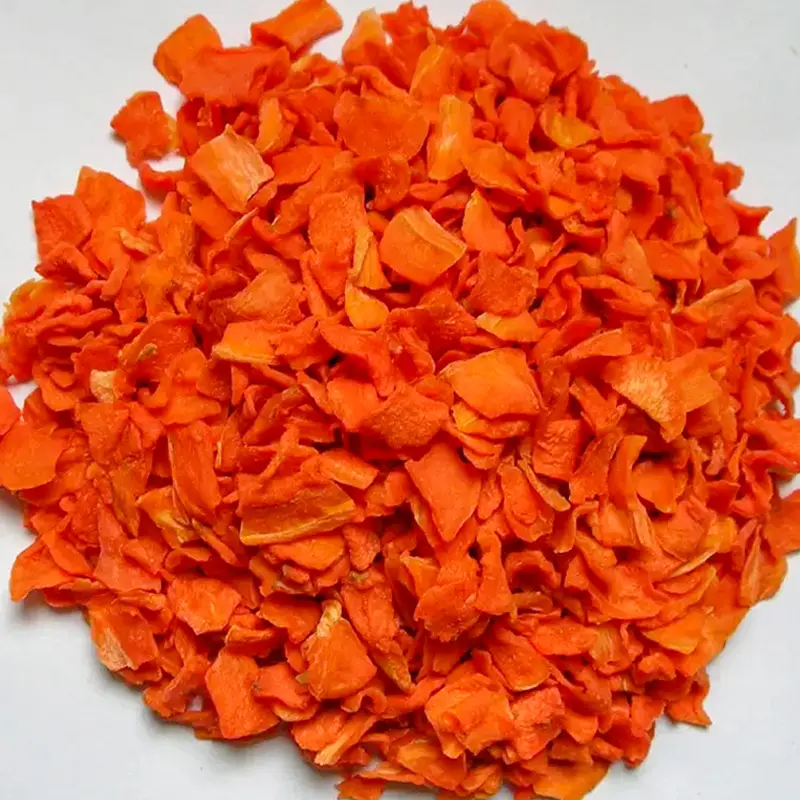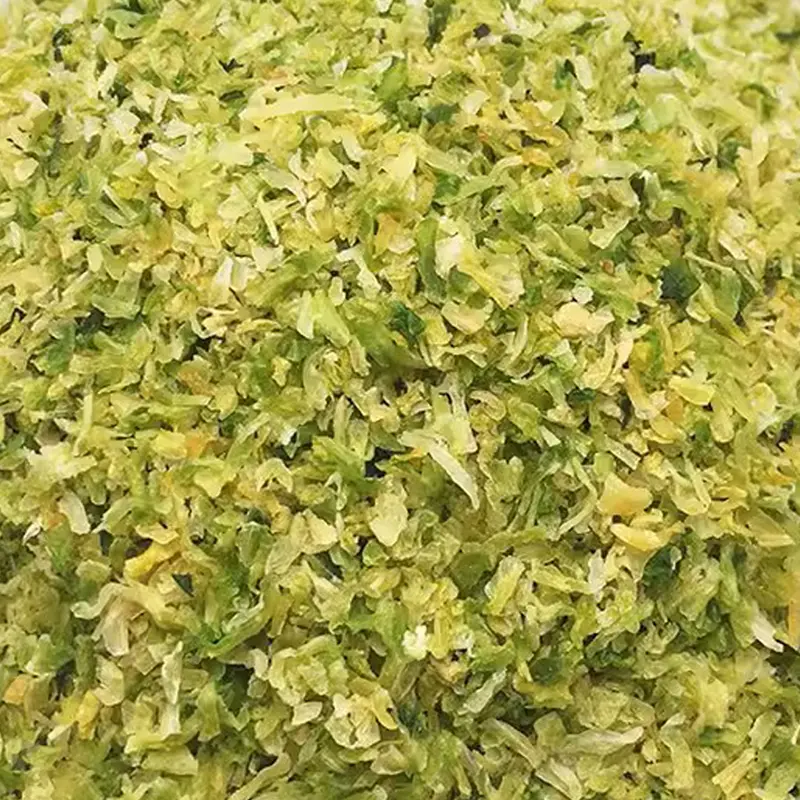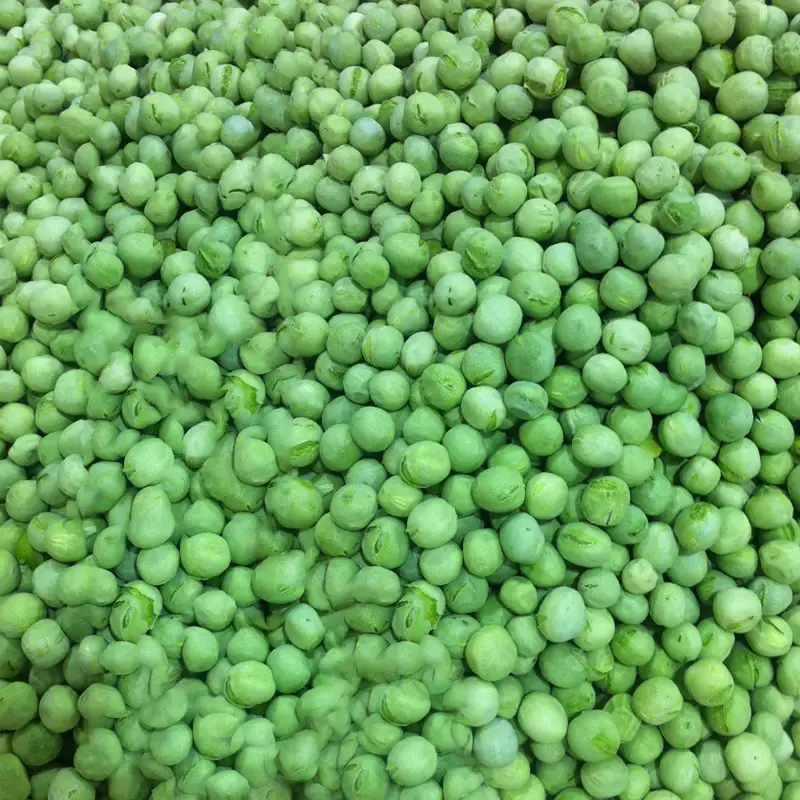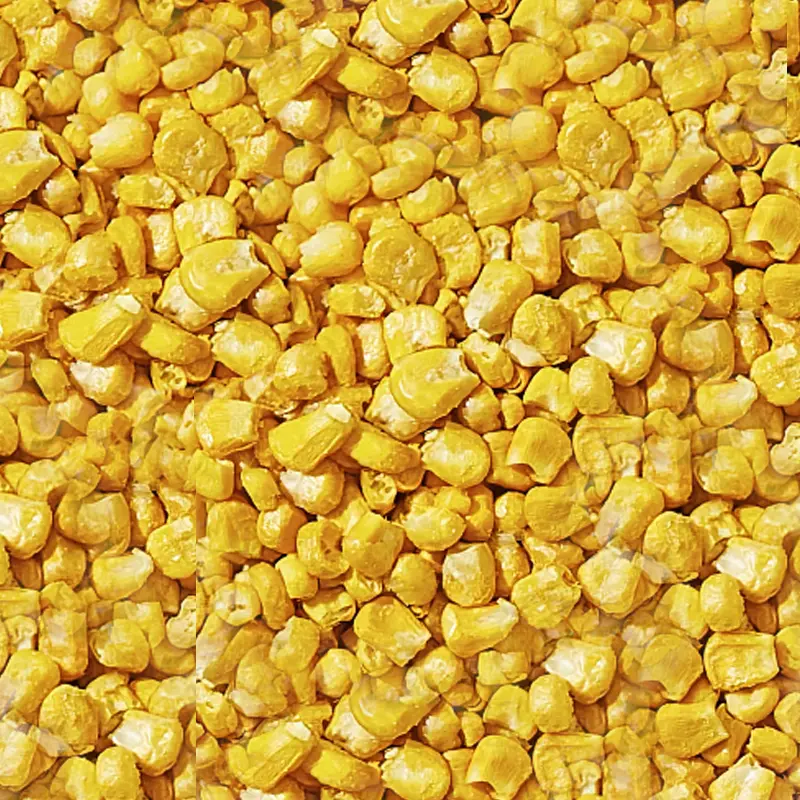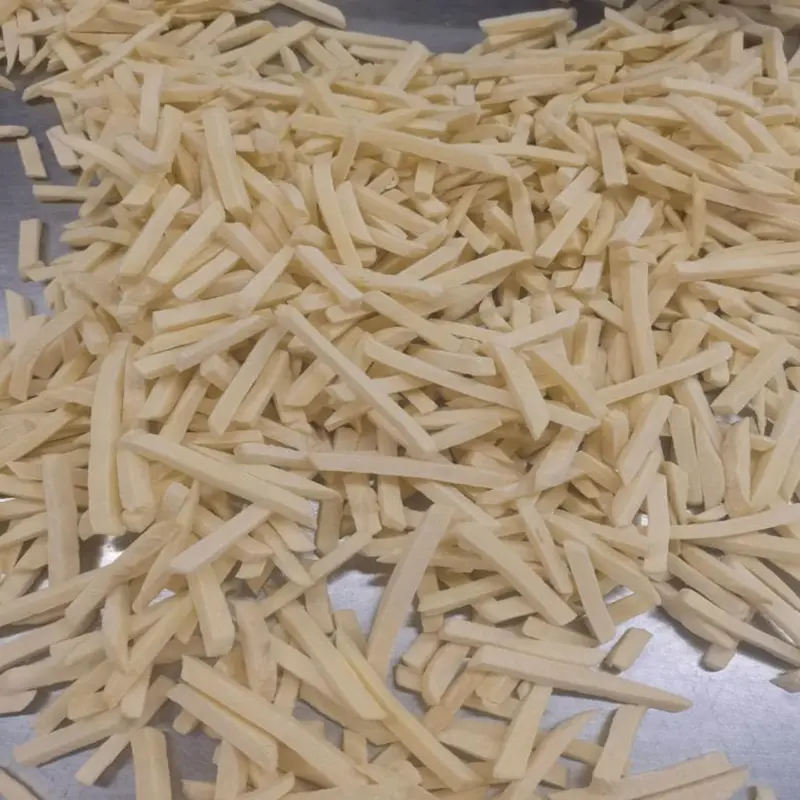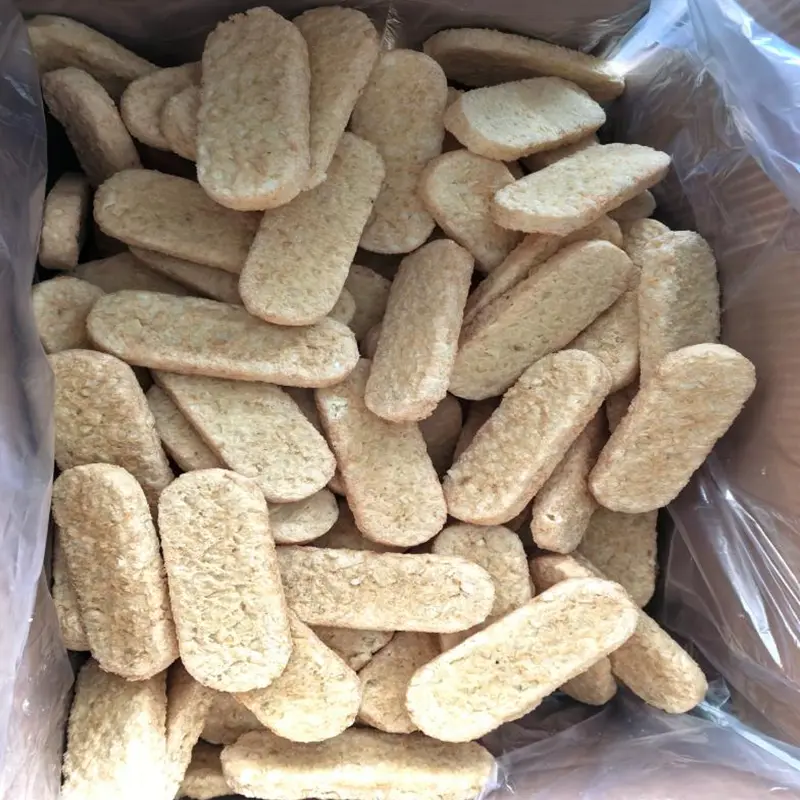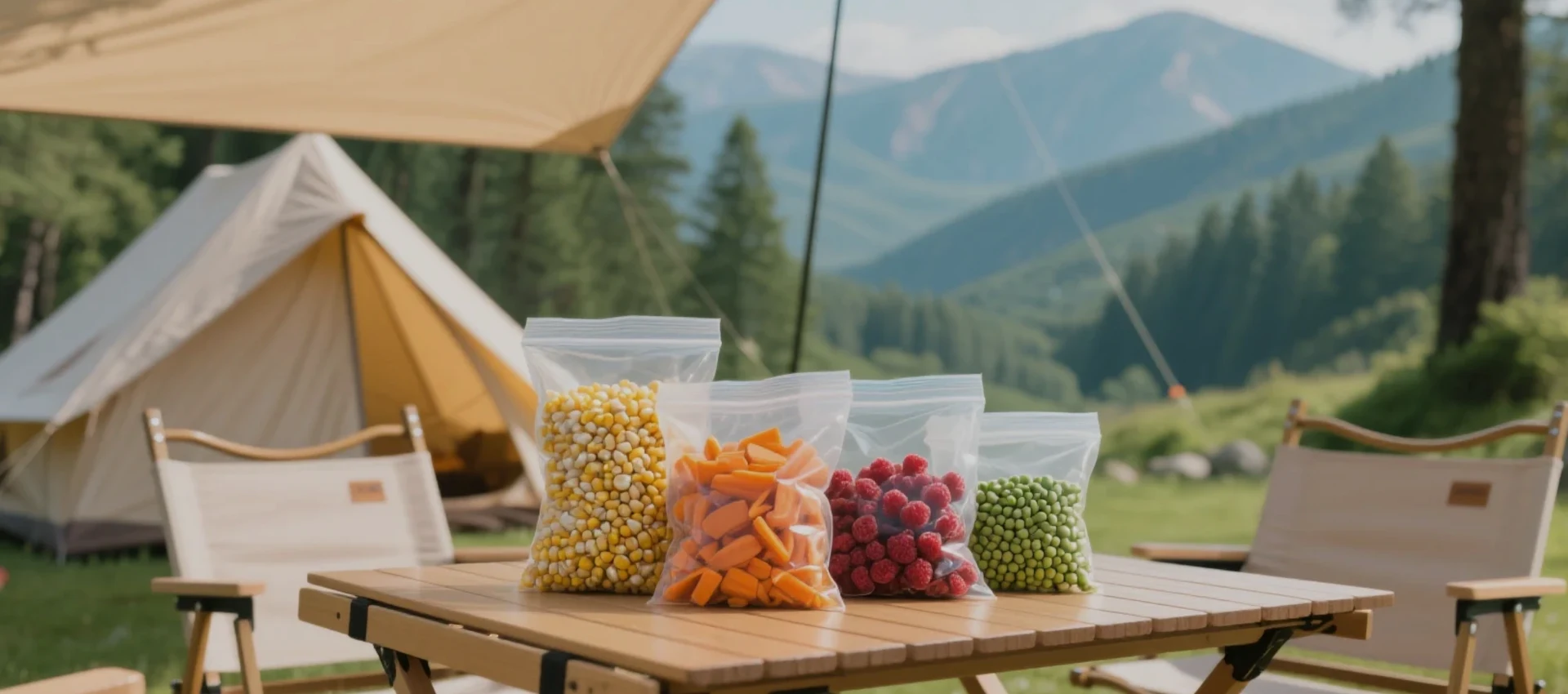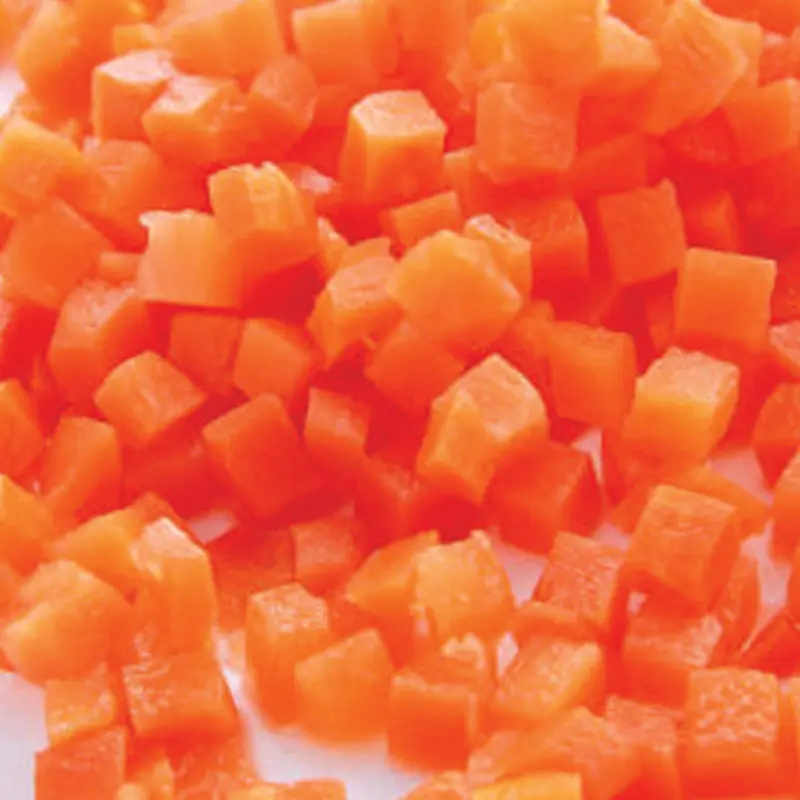Introduction to Frozen Diced Carrots
Frozen diced carrots refer to a deep-processed vegetable product made by quickly freezing fresh carrots after dicing through low-temperature quick-freezing technology for long-term preservation. Using “quick-freezing” technology, it maximizes the retention of carrots’ nutritional value and natural flavor, with each piece maintaining a crisp texture and bright orange-red color akin to fresh carrots. This convenient frozen form breaks through seasonal limitations (fresh carrots are mainly harvested from autumn to early winter), making it a healthy fast-food option for households, catering services, and busy lifestyles. It shares the same high β-carotene and high-fiber profile as fresh carrots (~2.8g fiber/100g) and can be quickly cooked, perfectly adapting to modern efficient living needs.
Key Advantages
- Nutrient preservation: Quick-freezing locks in nutrients before carrot cells fully freeze, retaining over 90% of β-carotene (converted to vitamin A), vitamin C, dietary fiber, and potassium (fresh carrots lose ~15% β-carotene after 2 days at room temperature).
- Natural flavor: Free of artificial additives (e.g., preservatives, colorants), it retains carrots’ natural sweetness through blanching and quick-freezing (some products are lightly salted for flavor).
- Vibrant color: Standardized blanching (with ascorbic acid for color protection) effectively inhibits carotenoid degradation, keeping each piece bright orange-red (matching the color of freshly picked carrots within 2 hours).
- Convenience: No need for washing or cutting (some products are pre-processed). Thawed dice can be microwaved, boiled, or stir-fried (cooked in 30 seconds-2 minutes), ideal for busy lifestyles.
- Healthy and low-fat: High in fiber (2.8g/100g) and low in calories (~41kcal/100g), rich in β-carotene (8350μg/100g) and potassium (320mg/100g), making it an excellent choice for eye health, blood sugar control, and daily nutrition supplementation.
Application Scenarios
- Quick home meals: Thawed dice microwaved for 30 seconds, tossed with salad dressing for “Carrot Salad”; or stewed with chicken and potatoes (“Carrot Chicken Stew”) for quick home dishes.
- Restaurant sides: Served in burgers, hot dogs (sandwiched in bread), or soups (e.g., carrot bisque) to enhance sweetness.
- Healthy light meals: A key ingredient in salad bowls (with lettuce, walnuts, and cheese), or blended into smoothies (mixed with bananas and spinach) for β-carotene supplementation.
- Baby food: Small dice mixed with rice cereal or porridge (e.g., “Carrot Millet Porridge”) to entice children and supplement vitamins for growth.
Quality Tips
- Store at a stable temperature below -18°C; avoid repeated thawing and refreezing (causes carrot dice to absorb water, soften, and lose texture).
- Control reheating time (microwave on medium-high for 30 seconds, boil for 1 minute). Avoid prolonged high heat (causes softening and darkening).
- Choose pure carrot dice (no mixed vegetables) to ensure pure flavor and concentrated nutrition.

